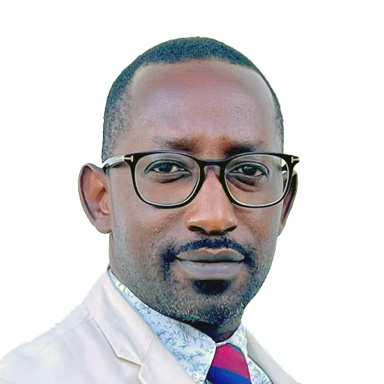Mediclinic Renal Clinics provide patient-centred care that addresses all aspects of renal therapies and treatment.
A diagnosis of kidney failure can feel devastating, but it’s reassuring to know Mediclinic Renal Services provides the best, most holistic treatment possible.
“The renal unit is team oriented, patient-centred and makes use of the latest technology available so we can provide the very best quality care,” says Khomotso Legodi, Unit Manager at Mediclinic Potchefstroom Renal Services. “We work tirelessly to ensure that our patients’ outcomes and overall health status improve when they become part of our Mediclinic Renal services family.”
Mediclinic Potchefstroom Renal Services focuses on convenience, adds Legodi. The centre has a multidisciplinary team to provide holistic treatment. A dedicated nephrologist, Dr Edgar Lutaaya, visits patients regularly, so they don’t have to book separate appointments with him. There’s also a dietitian available who can help patients manage kidney disease through diet, with monthly appointments or as needed. Patients can also ask for help from a psychologist if needed.
Focus on acute and chronic treatment
Patients can receive both acute and chronic treatment. The unit provides long-term treatment called chronic haemodialysis and patients usually have three sessions a week, each lasting up to four hours. For those who want more control over their treatment, home peritoneal dialysis is available, allowing them to manage their own schedules.
Acute kidney treatment takes place at the nearby Mediclinic Potchefstroom hospital. This includes various procedures like haemodialysis, haemodiafiltration, plasma exchange, continuous renal replacement therapy, and sustained low-efficiency dialysis. Additionally, Mediclinic Potchefstroom Renal Services plans to start a nighttime dialysis service soon.
“We’re excited to be able to offer this service as it means patients can enjoy an improved quality of life and a better social life by dialysing at night. It’s also a good option for patients who must manage their time according to the demands of their job,” Legodi says.
What is dialysis?
Legodi explains that dialysis is a procedure in which a dialysis machine and an artificial dialyser – acting like a kidney – remove toxins, waste products, and excess fluid from the blood. This process replaces the functions usually performed by the kidneys, which are compromised due to kidney failure.
“Keeping in line with dialysis with a difference, our centres offer treatment in private cubicles, and each cubicle has an entertainment tablet so patients can watch streaming services like Netflix, or access the internet,” Legodi says. “But dialysis is only one part of the treatment. We realise that our patients and their loved ones need to come to terms with their diagnosis and what it means for their future wellbeing.”
Legodi says the unit’s staff has been trained to assist in this area: “We have an open-door policy, and anyone who wants to talk to the unit manager is welcome to do so. If I’m unable to help, I will call on our psychologist – and, of course, our doctors are very supportive. We also make a point of including families when providing information about the condition – it’s crucial that they understand what kidney failure is, and how to manage it.”
Further publications on the topic
Doctors 1


